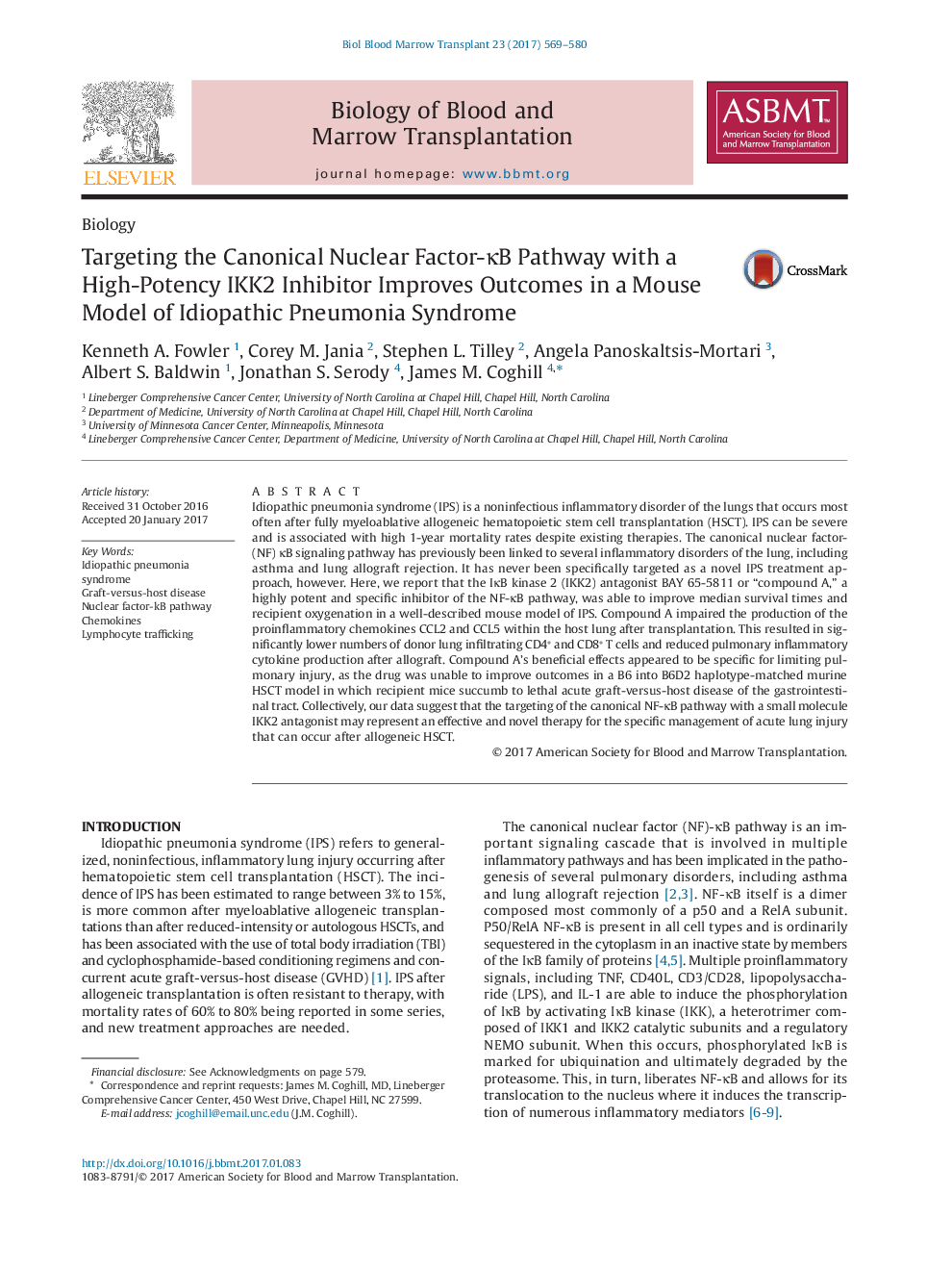| کد مقاله | کد نشریه | سال انتشار | مقاله انگلیسی | نسخه تمام متن |
|---|---|---|---|---|
| 5524411 | 1546242 | 2017 | 12 صفحه PDF | دانلود رایگان |

- A potent nuclear factor-κB inhibitor improved outcomes in a mouse model of idiopathic pneumonia syndrome
- These effects were lung specific and did not alter gastrointestinal graft-versus-host disease
- The nuclear factor-κB antagonist blocked proinflammatory chemokine production in the host lung
- Reduced donor T cell accumulation was observed within pulmonary tissues after transplantation
- The compound reduced proinflammatory cytokine production in the lungs
Idiopathic pneumonia syndrome (IPS) is a noninfectious inflammatory disorder of the lungs that occurs most often after fully myeloablative allogeneic hematopoietic stem cell transplantation (HSCT). IPS can be severe and is associated with high 1-year mortality rates despite existing therapies. The canonical nuclear factor-(NF) κB signaling pathway has previously been linked to several inflammatory disorders of the lung, including asthma and lung allograft rejection. It has never been specifically targeted as a novel IPS treatment approach, however. Here, we report that the IκB kinase 2 (IKK2) antagonist BAY 65-5811 or “compound A,” a highly potent and specific inhibitor of the NF-κB pathway, was able to improve median survival times and recipient oxygenation in a well-described mouse model of IPS. Compound A impaired the production of the proinflammatory chemokines CCL2 and CCL5 within the host lung after transplantation. This resulted in significantly lower numbers of donor lung infiltrating CD4+ and CD8+ T cells and reduced pulmonary inflammatory cytokine production after allograft. Compound A's beneficial effects appeared to be specific for limiting pulmonary injury, as the drug was unable to improve outcomes in a B6 into B6D2 haplotype-matched murine HSCT model in which recipient mice succumb to lethal acute graft-versus-host disease of the gastrointestinal tract. Collectively, our data suggest that the targeting of the canonical NF-κB pathway with a small molecule IKK2 antagonist may represent an effective and novel therapy for the specific management of acute lung injury that can occur after allogeneic HSCT.
Journal: Biology of Blood and Marrow Transplantation - Volume 23, Issue 4, April 2017, Pages 569-580